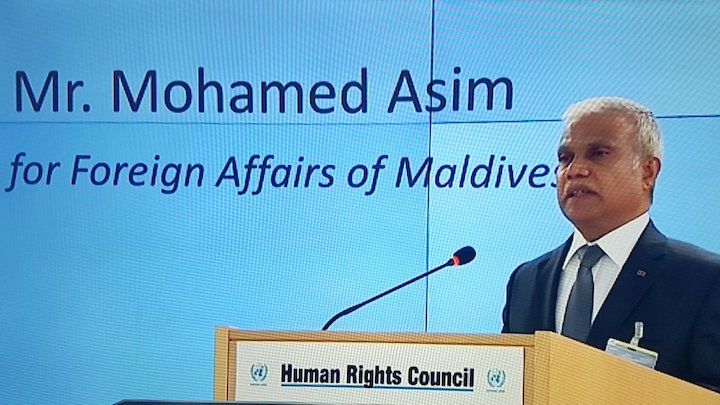Maldives seeks third term on UN Human Rights Council
Despite the foreign minister claiming successful consolidation of democracy, the curtailment of fundamental rights and the widely condemned imprisonment of opposition leaders during President Abdulla Yameen’s three-year administration has prompted fears of an “authoritarian reversal.”

28 Feb 2017, 09:00
Amid persisting criticism of the current administration’s human rights record, Foreign Minister Dr Mohamed Asim announced Monday that the Maldives will seek a third term as a member of the United Nations Human Rights Council.
“Our membership of the council, and our close partnership with the UN human rights mechanism helped to consolidate democracy in the Maldives,” he said at the high-level segment of the council’s 34th session in Geneva.
“Our democratic transition and strengthening of human rights have benefitted from the engagement we have had with the international community, in particular, the United Nations system,” he added, citing the launching of a national human rights action framework in December and plans to formulate a comprehensive action plan with 14 priority outcome areas.
Despite Asim’s suggestion that democracy has been consolidated in the Maldives, the curtailment of fundamental rights and the widely condemned imprisonment of opposition leaders during President Abdulla Yameen’s three-year administration has prompted fears of an “authoritarian reversal.”
Become a member
Get full access to our archive and personalise your experience.
Already a member?
Discussion
No comments yet. Be the first to share your thoughts!
No comments yet. Be the first to join the conversation!
Join the Conversation
Sign in to share your thoughts under an alias and take part in the discussion. Independent journalism thrives on open, respectful debate — your voice matters.




